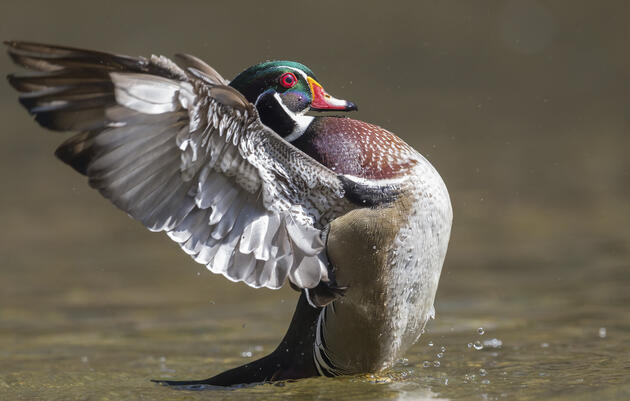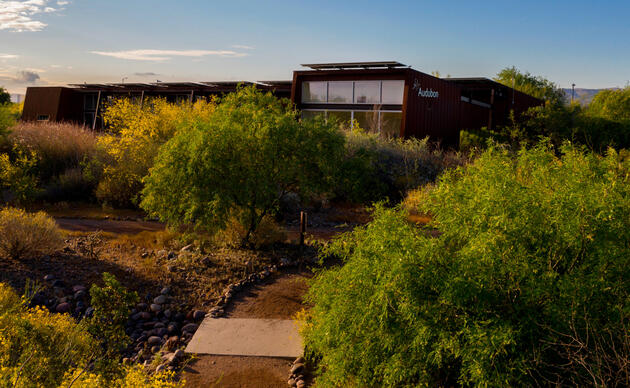The 2021 Legislative session kicked off on Tuesday January 19th and promises to be a session like no other. Uncertainty and tension grip the country, and there are safety concerns about the goings-on at all 50 state capitols. This is in addition to the COVID-19 pandemic of course. The New Mexico State Legislature is opting for a mostly virtual 60-day session with no in-person public involvement. 60-day sessions happen every other year, and are the only opportunities to pursue complex policy legislation, so it is critical to stay engaged even if participation looks different. Our legislators can still be reached by email and phone, and Audubon Southwest will be sending periodic action alerts to our membership at important moments during the session. Here are some of the bills we’re working on this session!
Environmental Database Act (HB 51: Rep. Chasey, Senator Stewart)
Right now, if you (or an agency for that matter) wanted to know everything going on in a given part of the state, you’d have to dig through data on many separate agency websites. HB 51 creates a centralized, map-based database of the state's basic environmental and public health data, so that a user could zoom in on an area of interest and know right away what the status of that area is, and even get a report back about what uses and resources are in that area.
Data that would be available on the new map includes locations of oil and gas wells, locations of critical habitat for endangered species, poverty and child asthma rates by zip code, and much more.
While the bill does not require agencies to use the database in any particular way, the hope is that it would naturally lead to better and more comprehensive land-use planning decisions. We believe it will help the public, agencies, and industry to have all this info consolidated.
The bill is available here.
Neonicotinoid bill (Senator Stewart)
Neonicotinoids are a class of pesticides which are harmful and often fatal to both insect and bird pollinators. This bill would prohibit the use of these chemicals in New Mexico except in limited circumstances where no damage to pollinators will occur.
The bill is available here.
Climate Resiliency Bill (Rep. Stansbury)
The Energy Transition Act, passed in 2019, requires New Mexico to be carbon neutral by 2045. This bill builds on that legislation by directing agencies to come together in a task force to develop regulations to implement wide-scale carbon neutrality by updating building codes, efficiency guidelines, and more.
Prescribed Burning Act (HB 57: Rep. McQueen)
Periodic use of prescribed fire has been shown to minimize the catastrophic effects of natural wildfires and create better habitat for birds. HB 57 mandates that prescribed fire on private land by private individuals may be used, and creates a fire certification program for private landowners.
The bill is available here.
Game and Fish Restructure Bill (Senator Steinborn)
This is a sort of omnibus bill to address several ongoing issues with the Game and Fish Department. It would change the name of the Department to the New Mexico Wildlife Department, give the department authority over all species (which it does not currently have), allocate a million dollars for non-game species programs, address the ratio of elk and deer tags that go to in-state residents, and more. Currently, the department is funded solely through hunting licenses and federal funds from gun sale taxes. No state money goes to the department, which leads it to strongly prioritize programs for game animals rather than otters, songbirds, bees, and other wildlife.
Community Solar (HB 106: Rep. Roybal-Caballero, Senator Stefanics, Senator Lopez)
Legislators have introduced this bill before, and are trying again in the 2021 session. It would allow communities (like condo complexes, solar gardens, etc) to purchase solar panel systems collectively, and would require utility companies to purchase the energy they produce. The bill would help address both climate and environmental justice issues.
The bill is available here.
Agency Budgets
In addition to legislation, we will also be monitoring the budget as it moves through the session, advocating for maintaining or increasing the budgets of environmental agencies in the state like the Environment Department and the Energy Minerals and Natural Resources Department. At the beginning of the COVID pandemic, agencies were told to expect a 5% reduction in their budgets across the board. The economic downturn was not as bad as expected however, and agencies can now expect flat budgets into the next fiscal year, with some small increases for pandemic-related expenditures.
Please consider joining our informative webinar, How to Use Your Voice for Birds on January 27th, to learn how the 2020 election has changed the New Mexico State Legislature, how to navigate the legislative process and effectively communicate with lawmakers, and what conservation policies we are advocating for this year.






